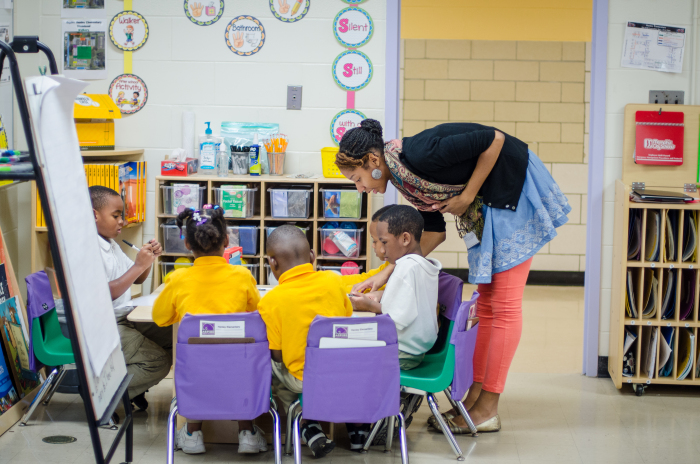Glory to God in the highest, and on earth peace, good will toward all. (Luke 2:14)
Christians everywhere share a common goal. We share it because it is a revealed vision of God’s will and future: “Peace on earth and good will toward all,” the angels declared as they announced the coming of God in Christ Jesus. The Book of Revelation gives us an even more defined vision of the coming Kingdom of God, the Renewed Creation, which is the reality of people from all nations living together in peace under the Lordship of Jesus Christ.
And so the vision for the Christian is to live in such a way as to promote peace, good will, dignity and mutual respect among people of all backgrounds as a picture of the Kingdom that is to come. Our cultural mandate (Genesis 1:27–28) is to build God’s norms, values, and image into our individual lives as well as our corporate and social worlds, led by His Spirit, as a means of serving all of mankind.
The Christian leaders of the Civil Rights Movement understood this as well. Dr. King, in his essay The American Dream, wrote:
God is not interested in the freedom of black men and brown men and yellow men. God is interested in the freedom of the whole human race and in the creation of a society where all men can live together as brothers, where every man will respect the dignity of and the worth of human personality.
Dr. King’s term for this vision was the Beloved Community, and the pursuit of the beloved community gave the civil rights movement its sustaining spiritual vision.
At the Memphis Teacher Residency, we put it like this: The Vision of MTR is to use our specific work within education, in partnership with other holistic organizations, to help restore communities so that all individuals can become empowered contributors to our city and people of all races and classes can engage with one another in peace.
Our vision is more than excellent teaching and learning. It is more than an educated work force. Our vision is that an educated population and the resulting improved job and life prospects will fill people with Dignity as they become positive contributors to their neighborhood and city and will allow people from every race and class to respect each other and live and interact with one another in Peace. And by doing so, the Christian teacher connects their daily work of teaching to the grand and eternal purpose for their life, providing a necessary infusion of perseverance for the hard work of teaching.
Today, this vision has not been realized, particularly within the realm of education. In Memphis (and in our nation’s largest urban centers) our education sector is incredibly segregated. In Shelby County Schools located within the Memphis city limits, student enrollments is as follows: 83% African-American; 9% Hispanic; 7% White; 1% Other. Nationally, a trend towards re-segregation is occurring. White students remain most isolated from all other racial groups and are the only racial group that attends schools where the overwhelming majority of students are from their own race. For example, across the U.S. white students attend schools with classmates that are 75% white.
Academic achievement continues to be unequal (only 3% of Memphis City School graduates are deemed “college ready” according to 2012 ACT scores). The average ACT score in our lowest performing communities in Memphis is between 14 and 15 while the highest performing public schools average between 24 and 25 and the leading private school average is above 28.
We believe today’s inequality in academic achievement reinforces, maintains and encourages the segregation of people, races and classes. Of course, this academic gap harms the poor student with both social wounds (poverty, joblessness, and incarceration,) as well as psychological wounds (shame, inferiority, despair, and fear), which are a violation of our rights as humans made and loved by God. As an example of the psychological damage to humanity from unequal and the present day de facto segregated education, consider Chief Justice Earl Warren’s majority opinion from Brown v. Board of Education (1954): “To separate [children in grade and high schools] from others of similar age and qualifications solely because of their race generates a feeling of inferiority as to their status in the community that may affect their hearts and minds in a way unlikely ever to be undone.”
We believe that this academic gap – and the segregation it demands – can also wound the privileged student with the psychological damage of superiority, materialism, protectionism and fear. In both scenarios, the wounds to the under-privileged and privileged student encourages isolation and are, therefore, a primary inhibitor to healthy and beloved communities.
Because unequal education is an inhibitor to peace and unity and the Beloved Community, it is in direct violation to the story of God in history. Therefore, the Church must participate in and contribute to public education by helping to bring equality of education to all children. Or, said differently, by loving our neighbors as ourselves as we serve the common good, beginning with the most marginalized.


